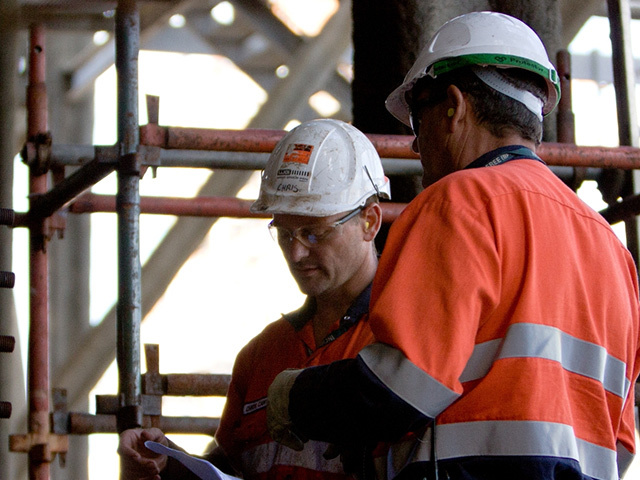
Wood Group PSN’s chief executive’s career started in a phone booth on Union Street.
Armed with a £1 offshore directory, company leader, David Stewart, cold called his way into his first interview.
“It was my work with oil and gas in the shipyard that got me really interested in the sector,” he said.
“Because shipbuilding was dying and oil and gas was the new opportunity and I was looking to the future.
“I drove up to Aberdeen, got in a phone booth on Union Street and made some calls.
“I didn’t know I single person. I just got a room in a guesthouse in Stonehaven.
“My brother-in-law, who was a joiner at the time, came up with me to keep me company.”
A handful of calls and one day later he was interviewing for his first industry job.
Thirty years on he’s survived four downturns, risen industry ranks and now heads one of the most influential service firms on the market.
So when he says the industry must finally put an end to silo working practices, which created an industry “sickness”, the sector should probably listen.
The industry leader referenced a mass talent exodus pre the oil price drop, which saw young recruits leave the service firm for lucrative dayrates.
Speaking to Energy Voice at this year’s Offshore Europe he said: “They were turning into day rate contractors and they stopped investing in themselves.
“I think there is a sickness in this industry where there are always people who are taking these day rates and not investing in themselves from a career development point of view.
“Over time because the industry is not developing itself the industry becomes stagnant.”
He added: “It creates a silo culture where everyone is just looking out for themselves.”
The model is in stark contrast from the Stewart’s career, which saw him spend the majority of the time with just two companies.
“My career has been focused on being the best that I can be and doing a good job,” he said.
“It’s not been about setting my sights on the big job. I’ve never done that.
“If you work hard and focus on being the best you can be and underpinning your company’s performance you will create opportunities.”
This downturn presents the sector with the chance to re-embrace the company culture era, which placed Aberdeen on the global map, according to Stewart.
“There’s the opportunity to reinvent ourselves, immerse ourselves in a culture and be part of a company,” he said.
“Oil and gas can offer young people a diverse career in one or two companies they don’t have to move around.”
The industry’s ability shift the culture stakes can help it capture emerging talent but is also critical to ensuring the sector’s future, according to Stewart.
“I believe oil and gas will be here for the next 30 to 50 years in the North Sea and I believe that we will recover the other 20 million barrels of oil out there but we need to do things differently,” he said
“The oil and gas industry is not a UK industry. It’s an international industry and the UK is a very small part of that.
“We need to make sure that young people see a future in oil and gas, because the future is not just the North Sea. It’s about being globally minded and exporting your skills.”
